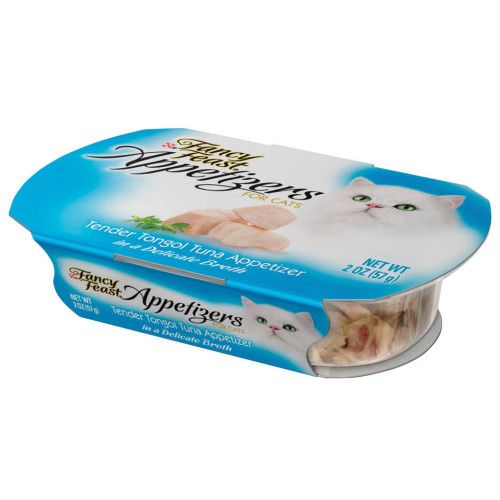Top Class Actions’s website and social media posts use affiliate links. If you make a purchase using such links, we may receive a commission, but it will not result in any additional charges to you. Please review our Affiliate Link Disclosure for more information.

The original Fancy Feast class action lawsuit alleged that Nestle uses seafood from Thailand and Indonesia in some of its varieties of Fancy Feast. Much of that seafood is purchased from the company Thai Union Frozen Products PLC, which uses slave labor on its fishing vessels, according to the complaint.
The Fancy Feast class action lawsuit claimed that Nestle should have disclosed its use of slave labor on fishing vessels to consumers of Fancy Feast cat food, and Nestle violated California consumer protection laws as a result.
Nestle argued that the class action lawsuit should be dismissed, because the California legislature had passed laws about companies disclosing the use of slave labor. Under the “safe harbor” doctrine, when California passes a law requiring specific disclosures, meeting those requirements creates a legal “safe harbor” from other consumer protection claims.
Nestle argued that the California Transparency in Supply Chains Act of 2010 applied here, and Nestle met its requirements. The law requires large companies to make several statements on their websites about whether or not they use slave labor or human trafficking in their supply chain.
According to Nestle, “[T]his claim is barred by the safe harbor doctrine because the California Legislature already considered the disclosures that large companies with potential forced labor in their supply chains need to make to consumers, and elected to not require the disclosures Plaintiffs seek now.”
The plaintiffs argued that the Supply Chains Act did not expressly say no other disclosures to consumers are required. In essence, it set the minimum necessary disclosures, not the only disclosures, for large companies to disclose potential use of slave labor to California consumers, according to the Fancy Feast class action plaintiffs.
U.S. District Judge Cormac J. Carney agreed with Nestle. According to Judge Carney, the plaintiffs’ argument ignores that the California Supreme Court has applied the “safe habor” idea when the Legislature has “permitted certain conduct” and when it has “considered a situation and concluded that no action should lie.”
Judge Carney looked at both the text and the history of the Supply Chains Act, and concluded that the California legislature considered the slave labor situation, and decided that only the disclosures required by the Supply Chains Act would be necessary.
“Plaintiffs may wish—understandably—that the Legislature had required disclosures beyond the minimal ones required,” Judge Carney declared. “But that is precisely the sort of legislative second-guessing that the safe harbor doctrine guards against.”
The plaintiffs are represented by Steve W. Berman, Ashley A. Bede, Elaine T. Byszewski, and Christopher R. Pitoun of Hagens Berman Sobol Shapiro LLP.
The Nestle Fancy Feast Class Action Lawsuit is Melanie Barber, et al., v. Nestle USA, Inc., et al., Case No. 8:15-cv-01364, in the U.S. District Court for the Central District of California, Southern Division.
ATTORNEY ADVERTISING
Top Class Actions is a Proud Member of the American Bar Association
LEGAL INFORMATION IS NOT LEGAL ADVICE
Top Class Actions Legal Statement
©2008 – 2024 Top Class Actions® LLC
Various Trademarks held by their respective owners
This website is not intended for viewing or usage by European Union citizens.














